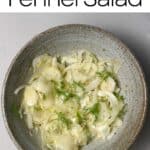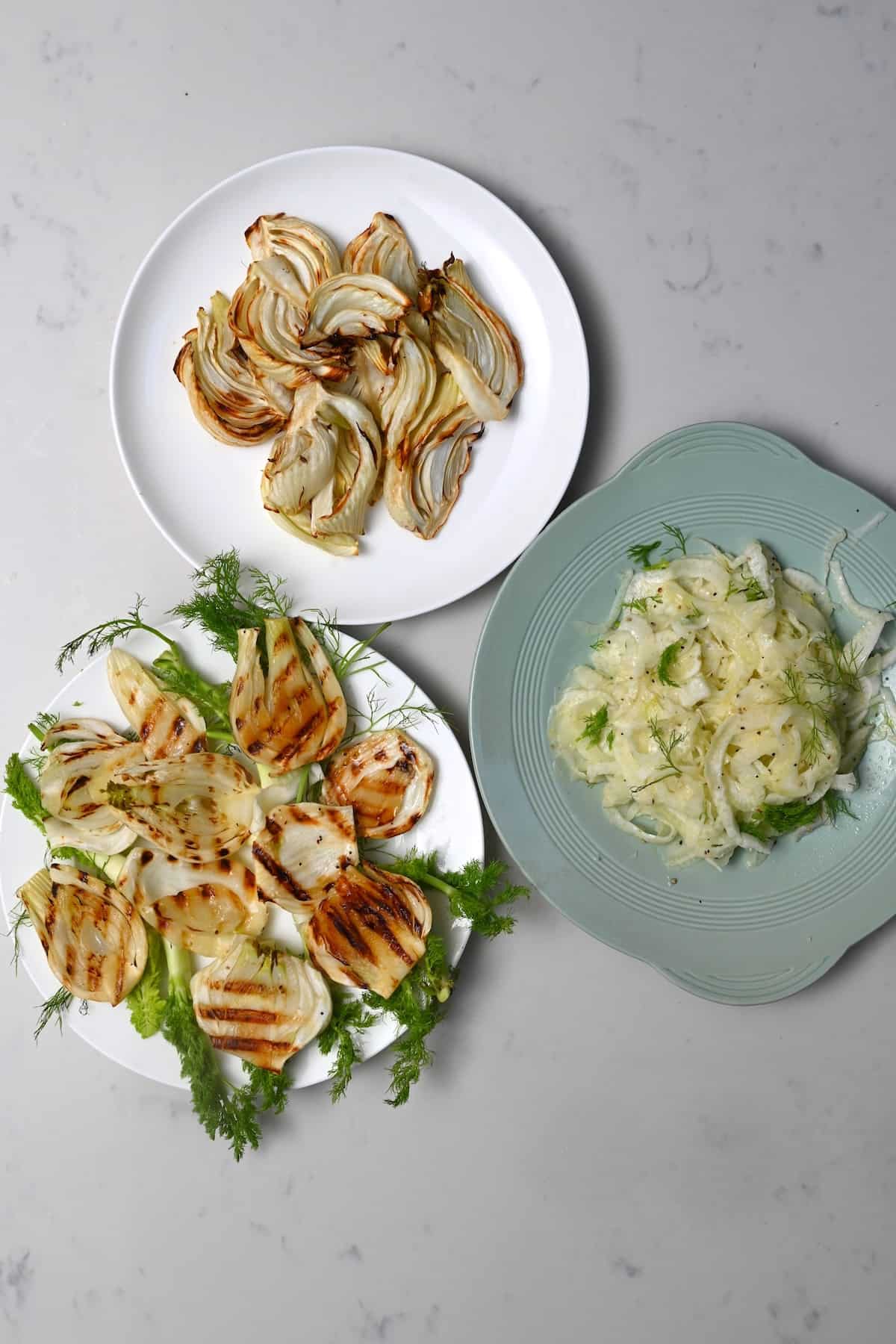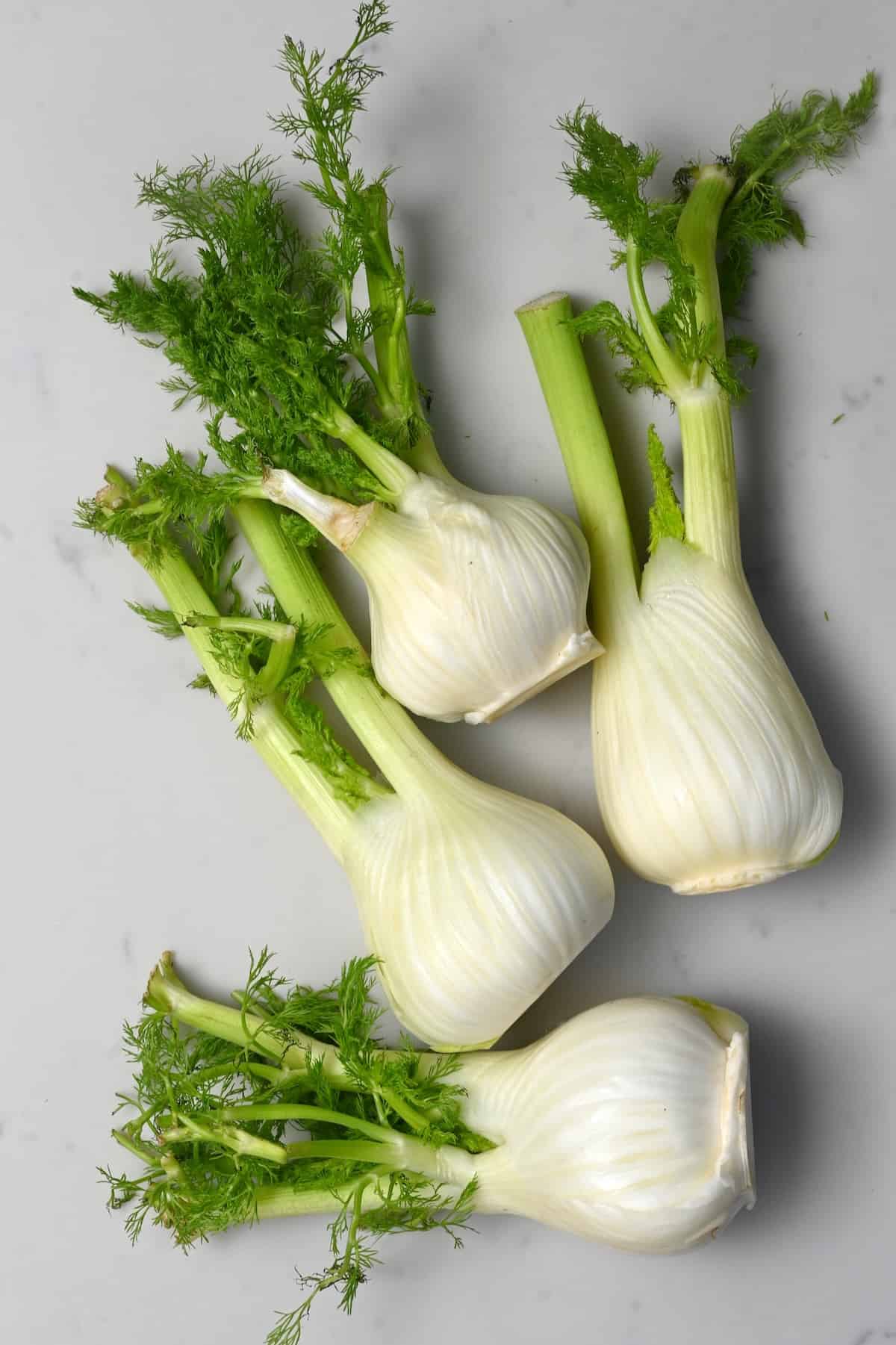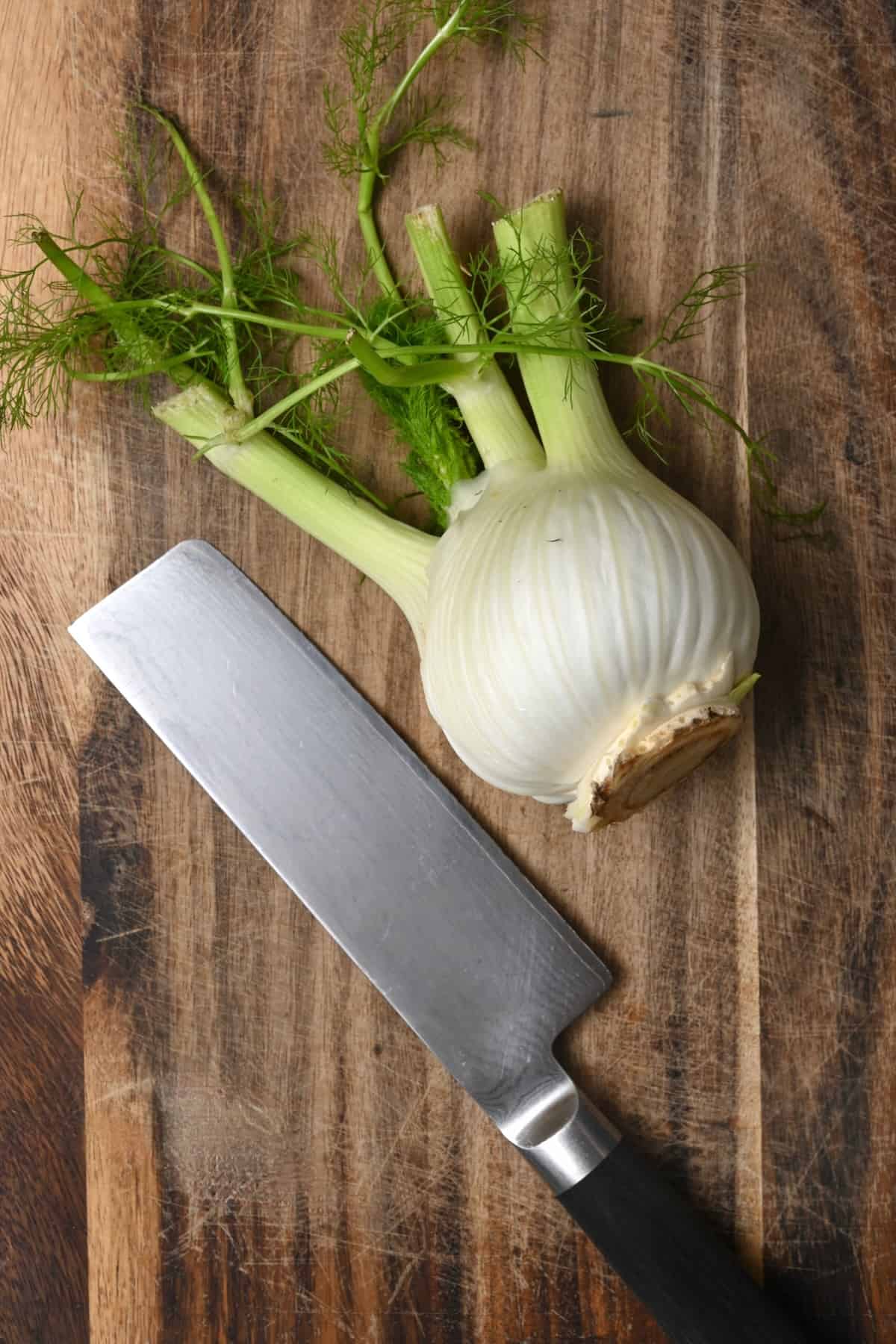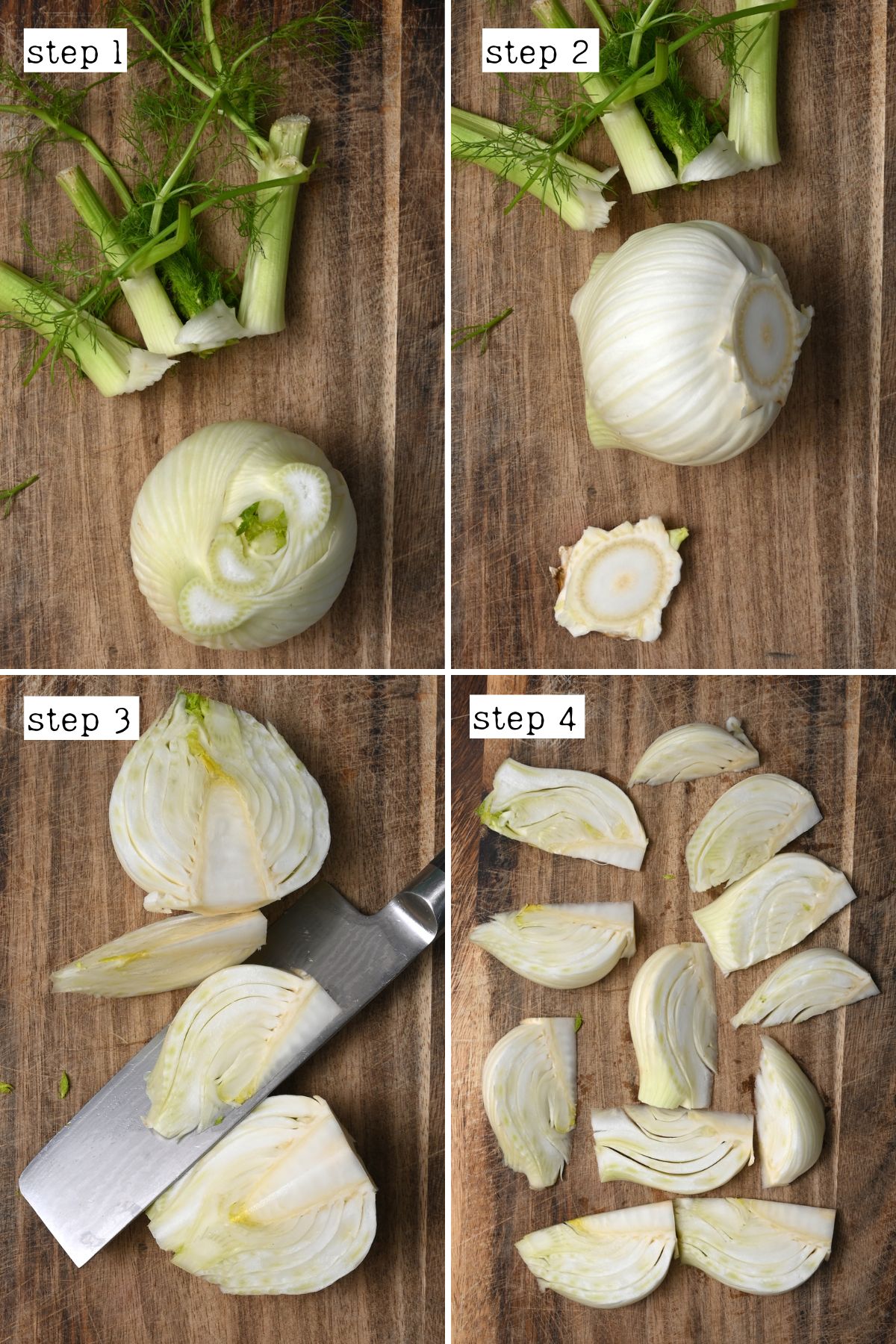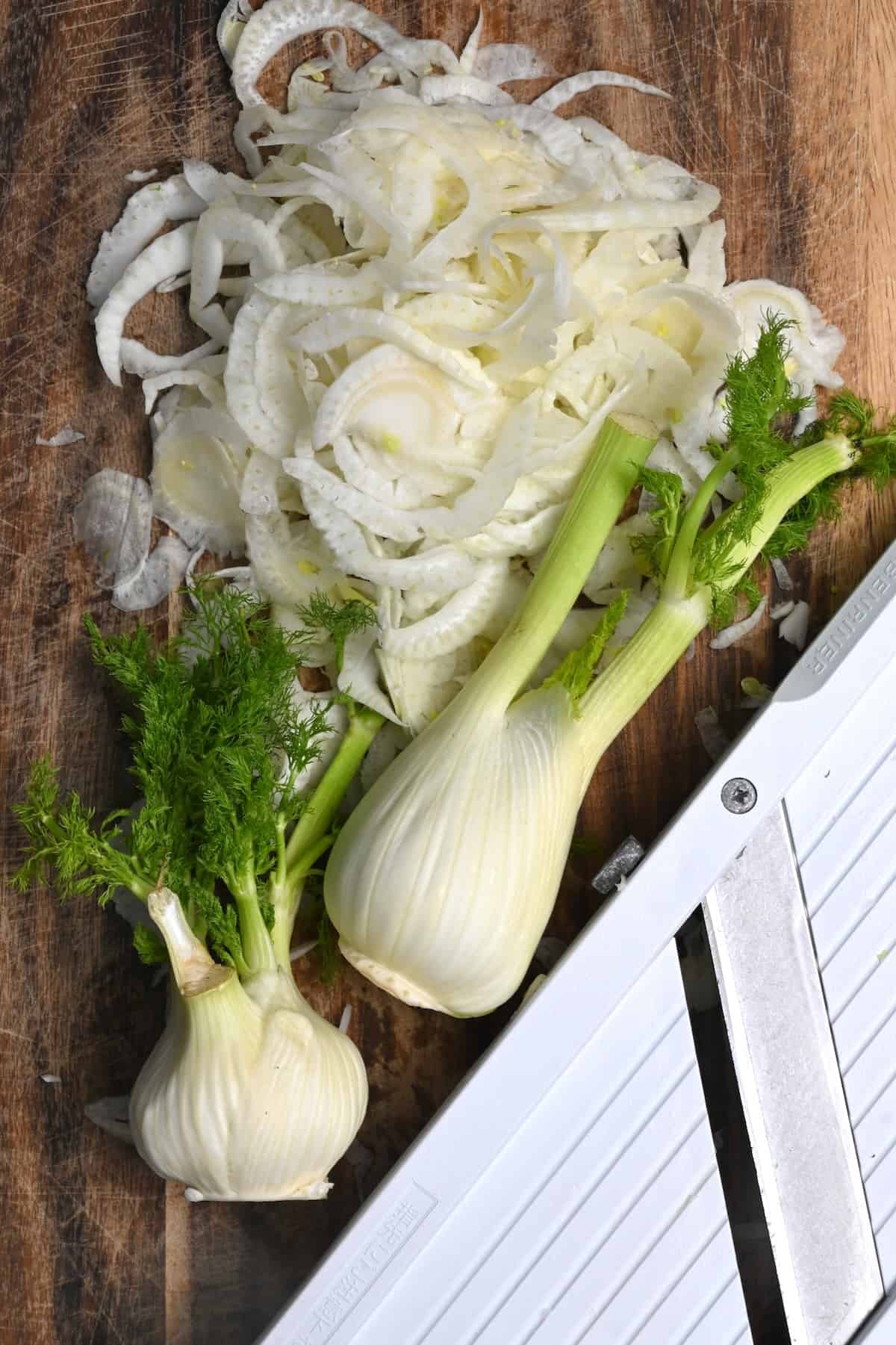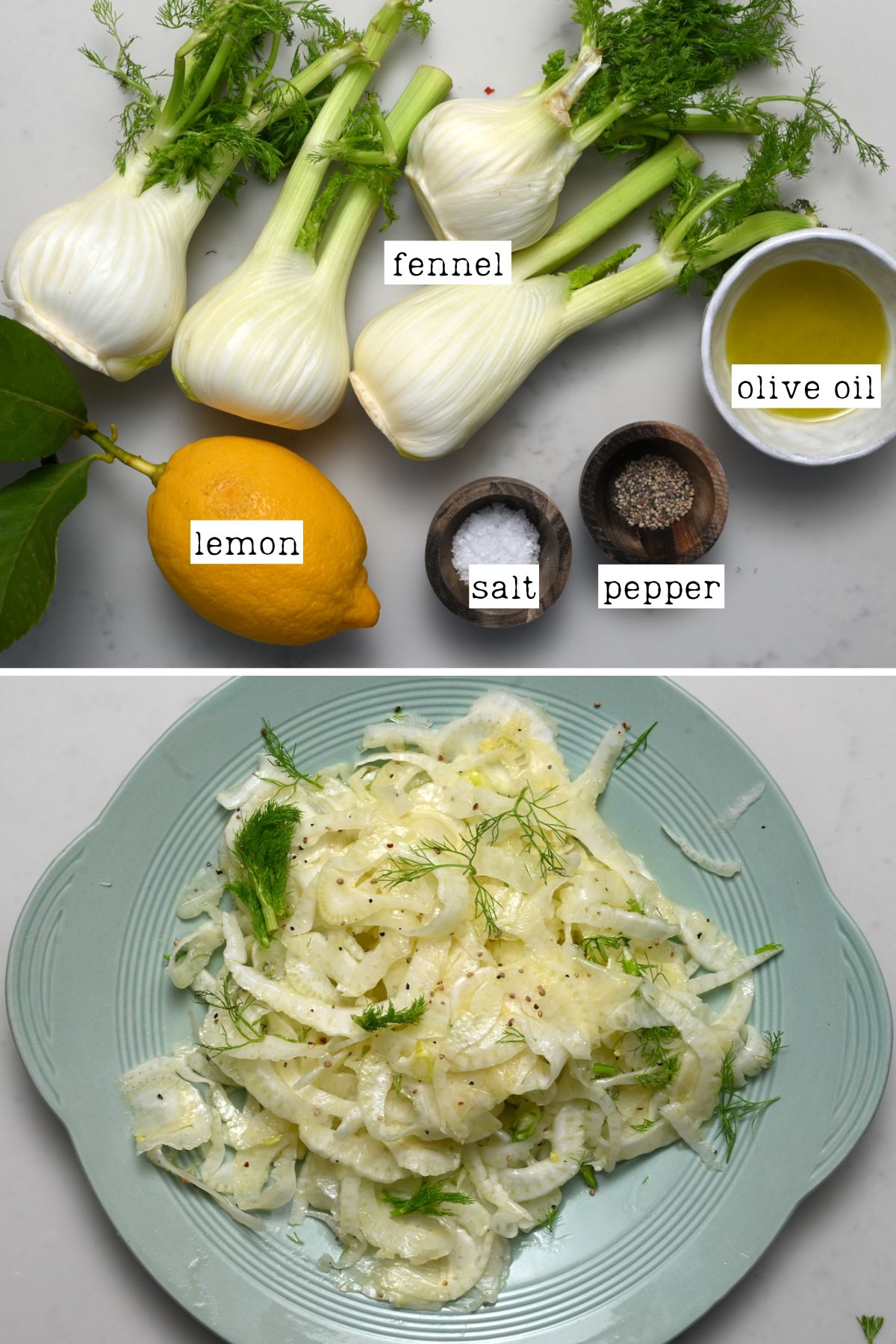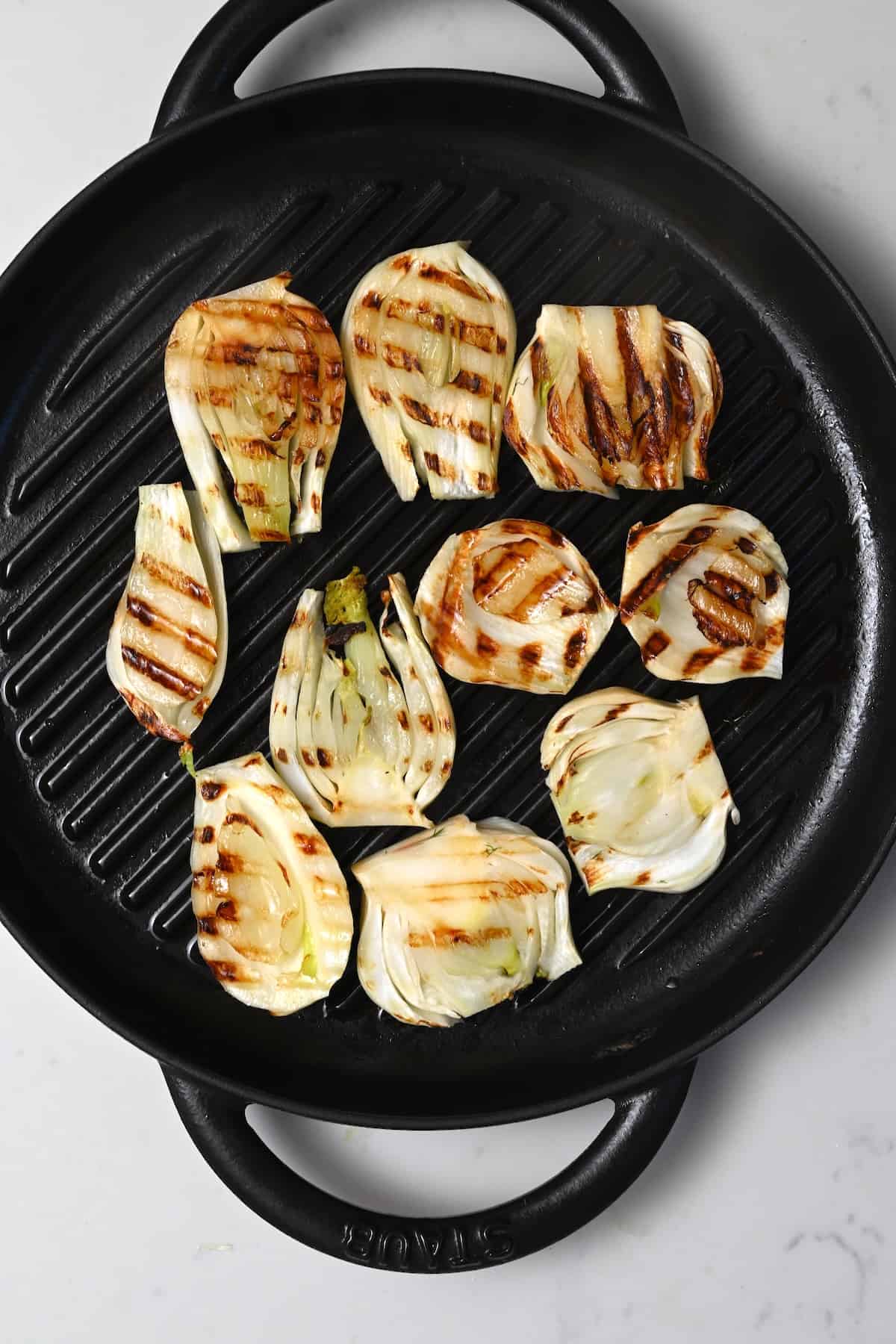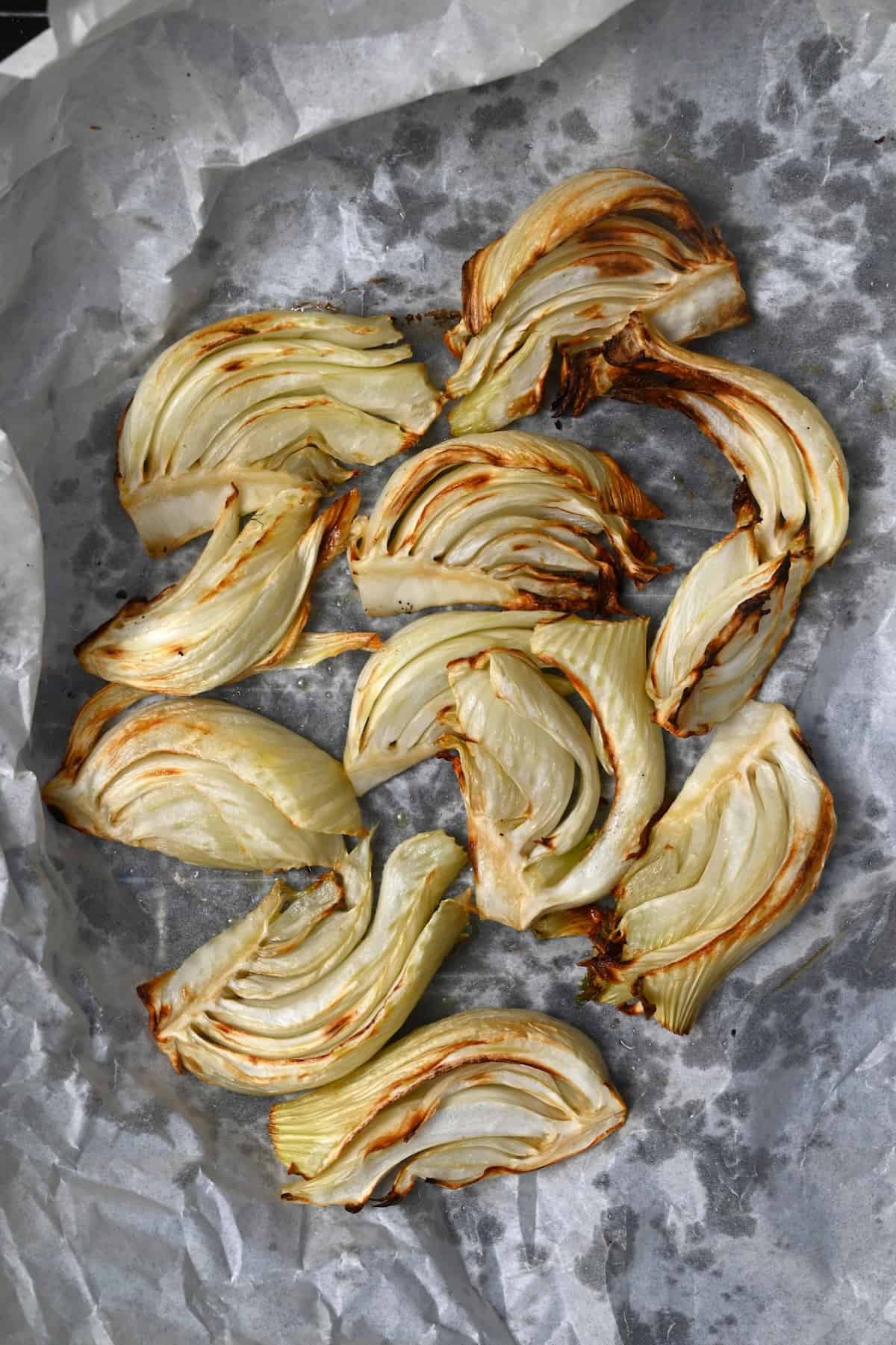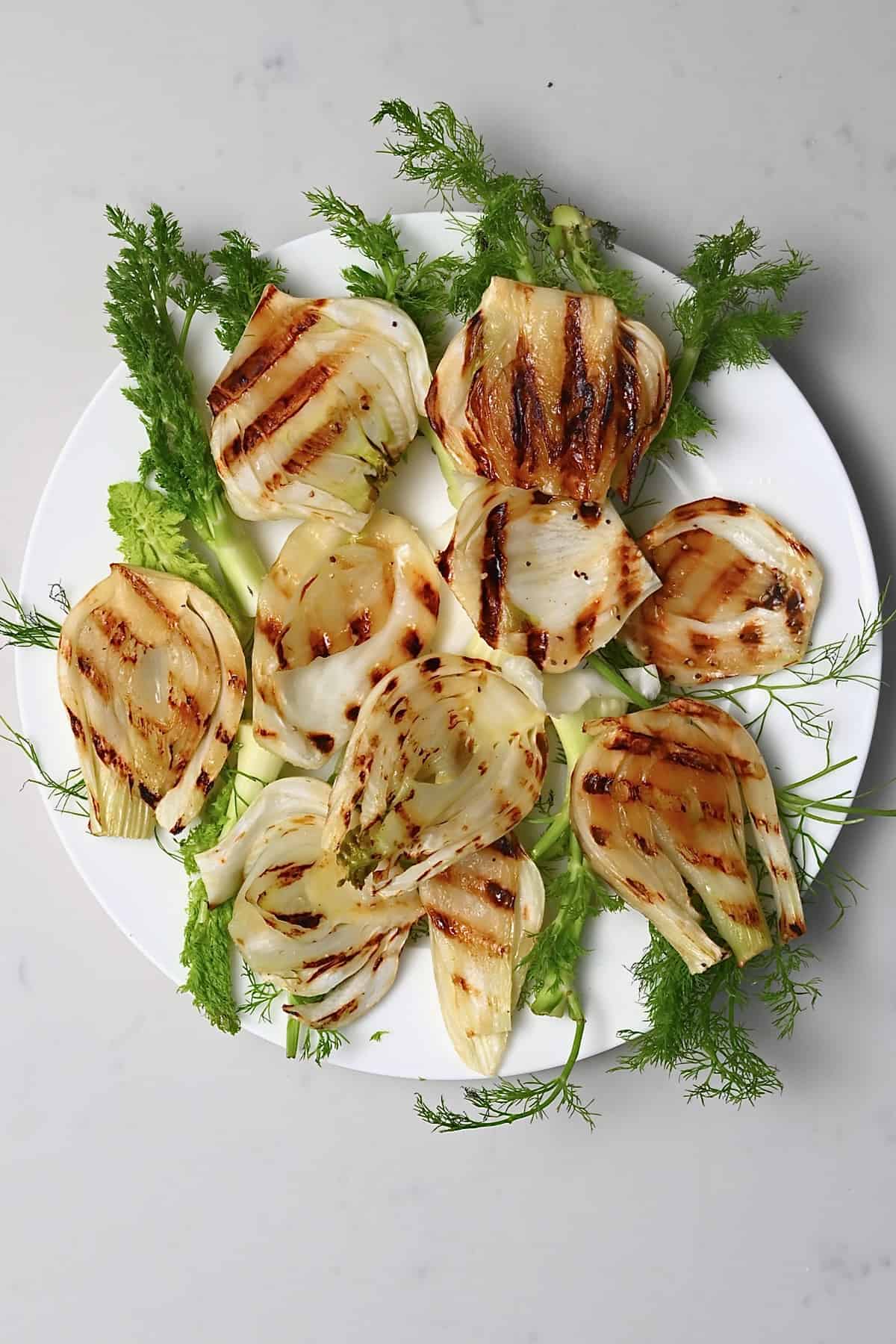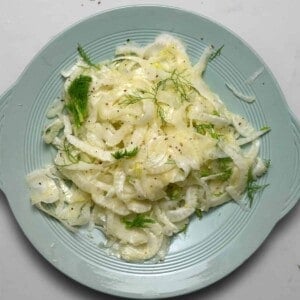If you’ve never worked with fennel before, this odd-shaped bulb with branches and “hairy” leaves may seem a little daunting, but it’s surprisingly simple to work with and enjoy once you know how. It’s crunchy with a robust, slightly sweet, anise-like flavor when raw. But it becomes super tender, caramelized, and mellow when roasted for a wonderfully aromatic side dish or addition to meals. Plus, every single part of it is edible. So let’s jump right in.
What is fennel?
Fennel (aka Foeniculum Vulgare) is a type of edible flowering plant member of the carrot family, with yellow flowers, feathery leaves (aka fennel fronds), and a large bulb. While all parts of the plant are edible, the seeds, leaves, and bulb are particularly popular. They are used as a highly flavorful spice, herb, and vegetable (the latter is particularly with the Finnocchio and Florence varieties), respectively. It’s in peak season in February.
What does fennel taste like?
This depends on which part you’re eating. But generally, it’s described as a vegetable that tastes like licorice.
The dried fennel fruits (often referred to as “fennel seeds”) contain the most potent flavor, similar to anise. They are often used as a spice or to make fennel tea. The fennel bulb also tastes very similar to anise, like a fresh, slightly sweet licorice flavor with a celery texture. It’s perfect for making a raw fennel salad or cooking it. The fronds/leaves have a slightly milder, more citrusy flavor.
Fennel Vs anise
While fennel is often compared to anise, the two are from different plants and have flavor differences. Anise is slightly sweeter and has a more potent licorice flavor. Fennel is more subtle overall and has more woody/green undertones.
What is fennel good for?
Along with its culinary uses, there are several notable fennel benefits:
The fresh bulb is a good source of Vitamin C with smaller amounts of several other vitamins and minerals. The fennel plant contains over 87 powerful plant compounds, including plenty of antioxidants to fight harmful free radicals and reduce inflammation. This in turn reduces the risk of several chronic diseases (heart disease, type 2 diabetes, etc.). Antimicrobial and anti-viral properties. The fennel vegetable is an excellent source of dietary fiber to help maintain gut and heart health.
It may also suppress the appetite, relieve gastrointestinal and menopause symptoms, and even benefit mental health. Check out Healthline for more fennel benefits.
How to cut fennel bulb
Selecting fennel: Choose fresh fennel bulbs that feel heavy for their size, with tightly packed layers, no bruising, and firm stalks (if attached). There are several ways to chop a fennel bulb. Here is my favorite way to prepare it. You can optionally remove the core (cut it in a triangle shape to remove it). If you leave it in, it will hold the layers of the bulb together when slicing fennel but it has a tougher consistency. To dice fennel, use a similar method to how to dice an onion. First, cut the bulb in half, slice it over the top, then once through the side, and dice.
How to shave fennel
First, chop the fresh fennel into quarters, then use a sharp knife or a mandoline to cut thinly sliced fennel into half-moon shapes. Shaved fennel tastes delicious on its own, in a larger salad, marinated, sautéed, and even caramelized.
What to do with fennel fronds
Fennel fronds are the “hairy” leaves at the top. They can be used similarly to soft herbs. Use them in salads, sauces, vinaigrettes, soups, garnish dishes, etc.
What to do with fennel stalks
The young shoots and the inflated base of the leaves can be consumed like celery. I like adding them to stews or soup stocks, like homemade vegetable stock. You can also use them as a “bed” underneath roasted meats (like roast chicken) or fish.
How to cook fennel
When it comes to how to use fennel, there are several popular cooking methods and fennel recipes. Here are a few of my top fennel recipes.
Quick raw fennel salad recipe
I think the best way to consume raw fennel is in a quick salad. All you need is raw fennel, lemon juice, and olive oil.
Grilled fennel recipe
Grilled fennel takes just minutes and adds a wonderfully smoky element to the cooked fennel.
Roasted fennel recipe
While this method takes longer, roasted fennel can become tender-crisp or melt-in-the-mouth tender with caramelized edges that bring out its sweetness and mellow the anise flavor. You can try cooking with fennel by braising, sauteing, or stewing it. If you’d like to see more recipes using fennel, let me know in the comments.
What goes with fennel
Enjoy the cooked fennel as a simple side dish for fish and other proteins or roasted veggies (especially in Italian and Mediterranean recipes). Or add it to salads, Greek pasta salads, pasta dishes, risotto, and more. It pairs particularly well with apples, pears, nuts, citrus fruits, etc.
Storing fennel
Store whole fennel bulbs loosely wrapped in the refrigerator for up to a week. Once sliced, keep it in an airtight container for 3-4 days. Bulbs with the stalks/fronds attached will last longer.
How to freeze fennel
You can freeze both raw and cooked fennel. I save raw stalks and trimmings for vegetable stock and store the fronds in a separate ziplock for 2-3 months. To freeze the bulb, quarter it and blanch it for 30 seconds. Then dry and flash freeze, before transferring to a Ziplock to store for up to 6 months. Once cooked, flash freeze on a tray until solid, then transfer to a Ziplock for 2-3 months.
More ingredient how-to’s
Okra – 6 Easy Methods to Cook It Leeks – How to Cut and Cook Eggplant – Bake, Broil & Air Fry Onions – Peel, Slice, Dice, And Chop Garlic – Crush, Chop, And Mince Ginger – Peel, Cut, Grate, and Mince
If you try these simple fennel recipes, recipe, let me know how it goes in the comments below. I’d appreciate a recipe card rating and would love to see your recipe recreations – tag me on Instagram @Alphafoodie!

